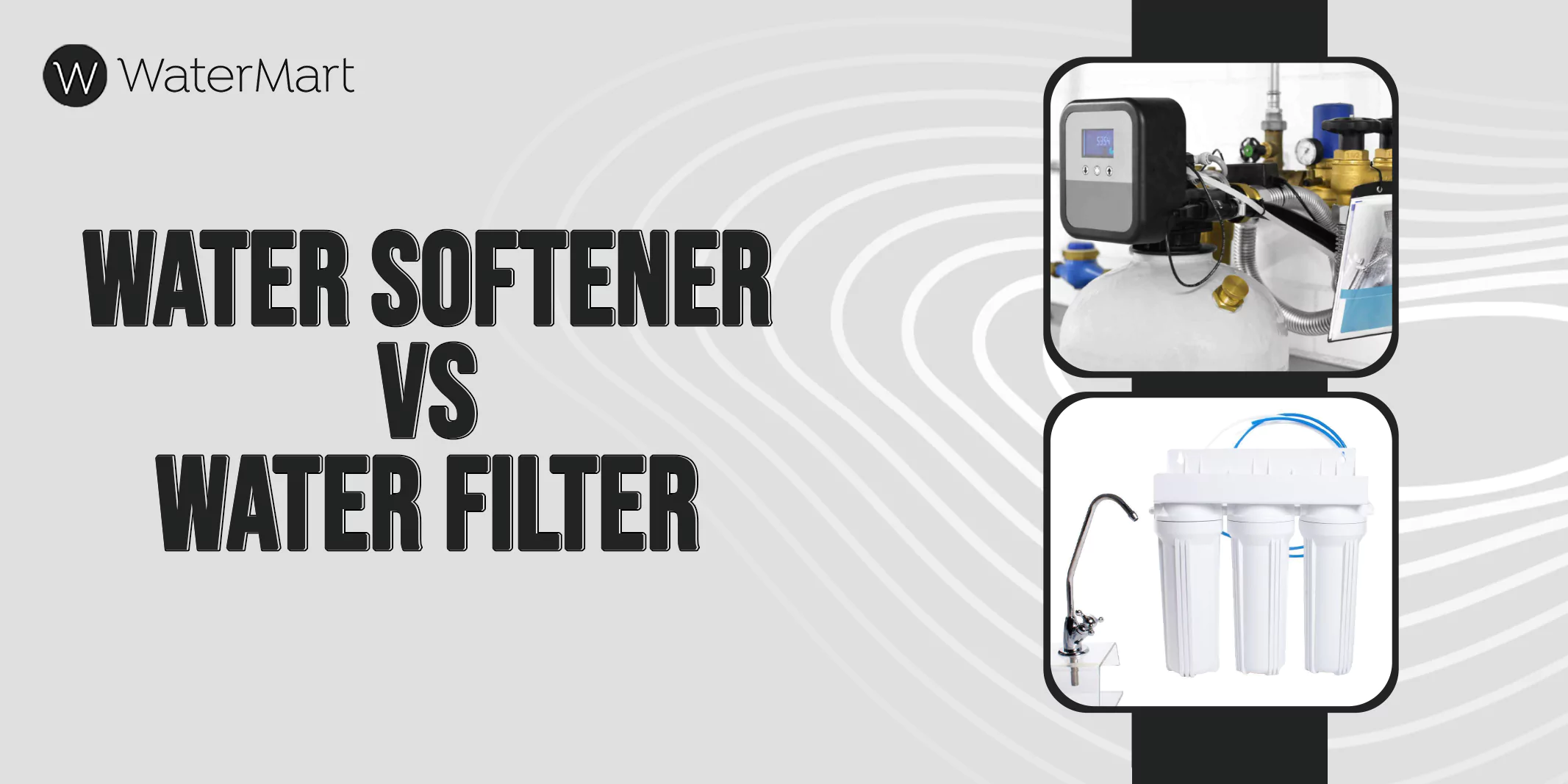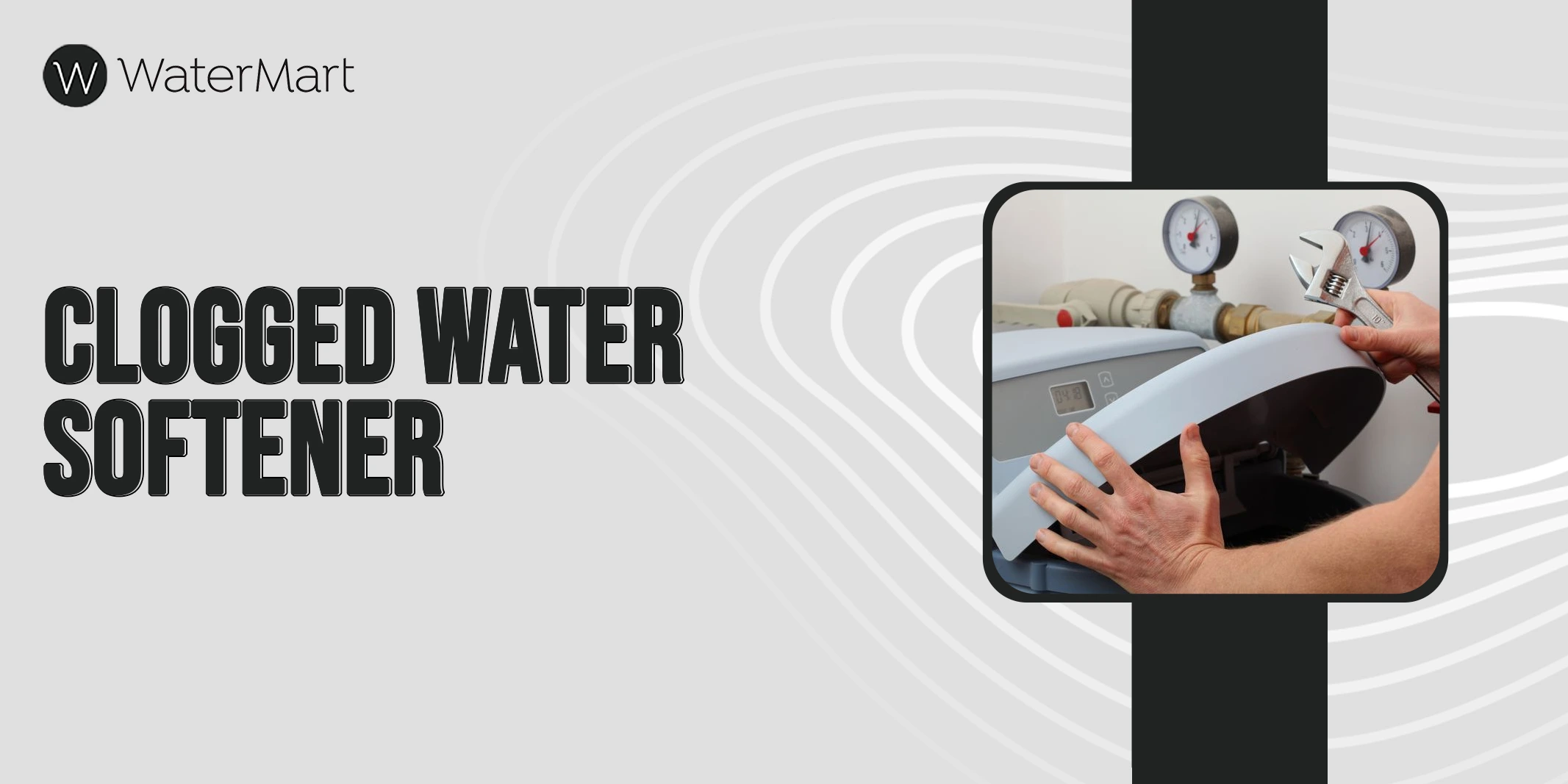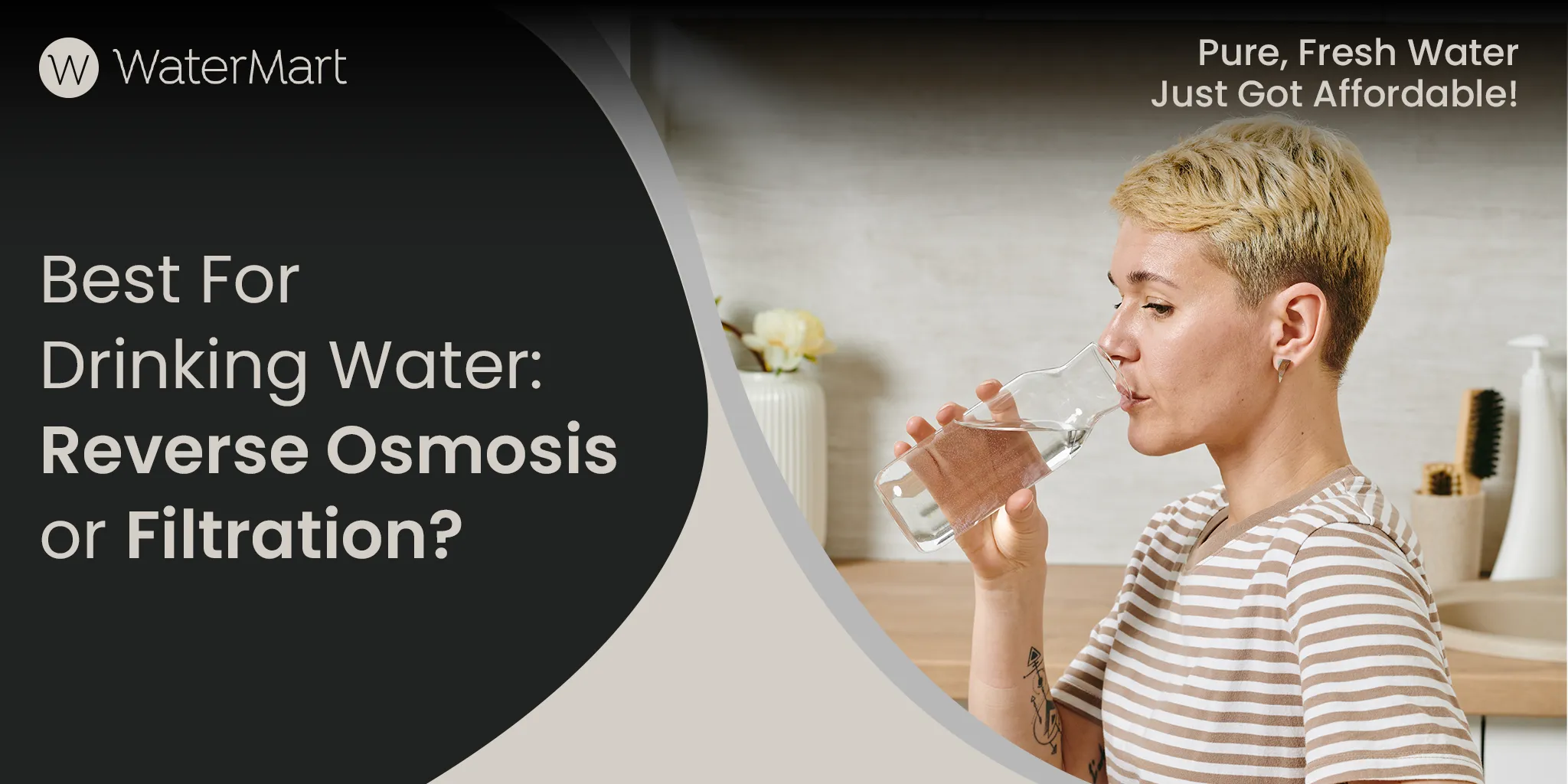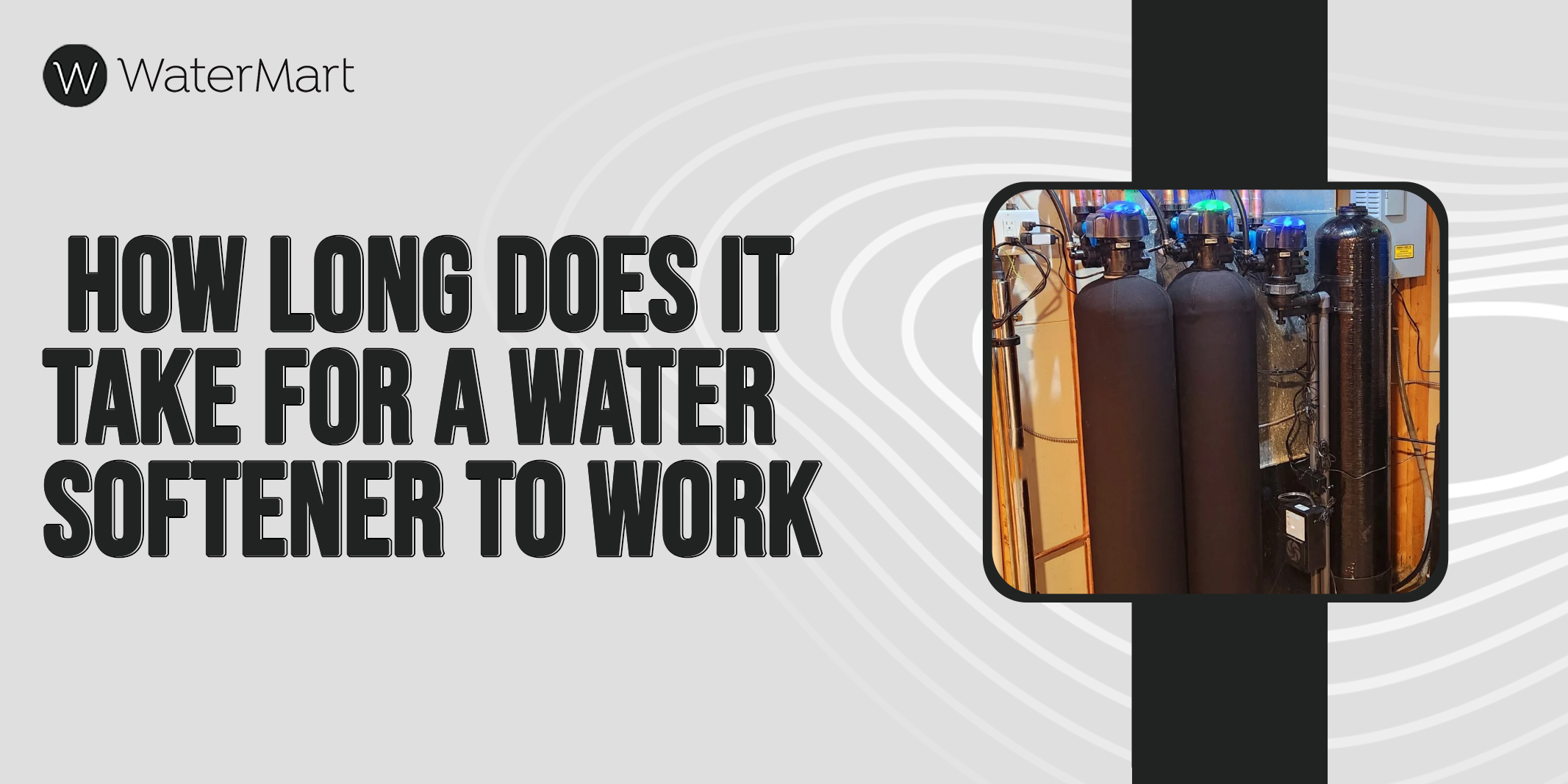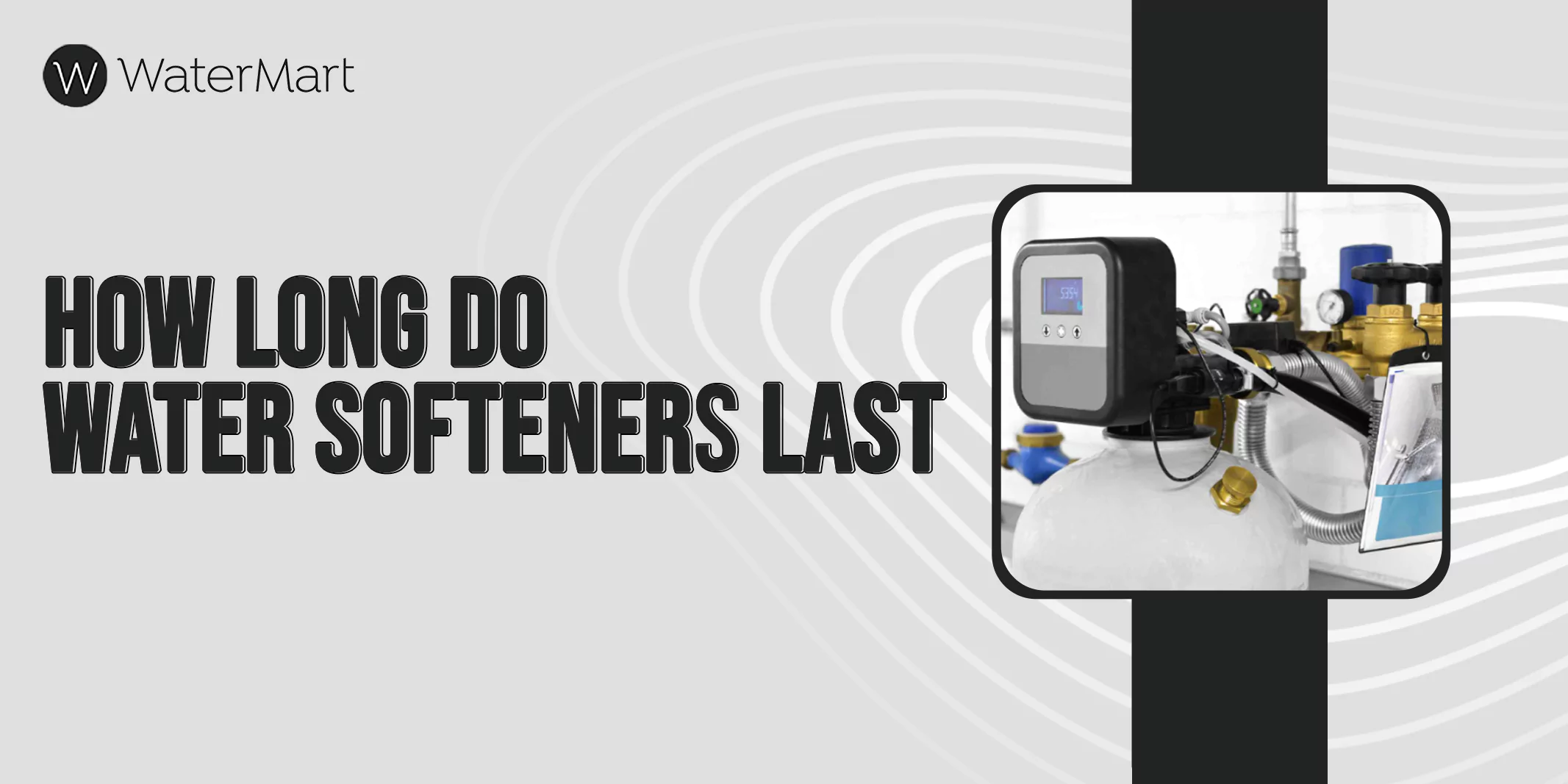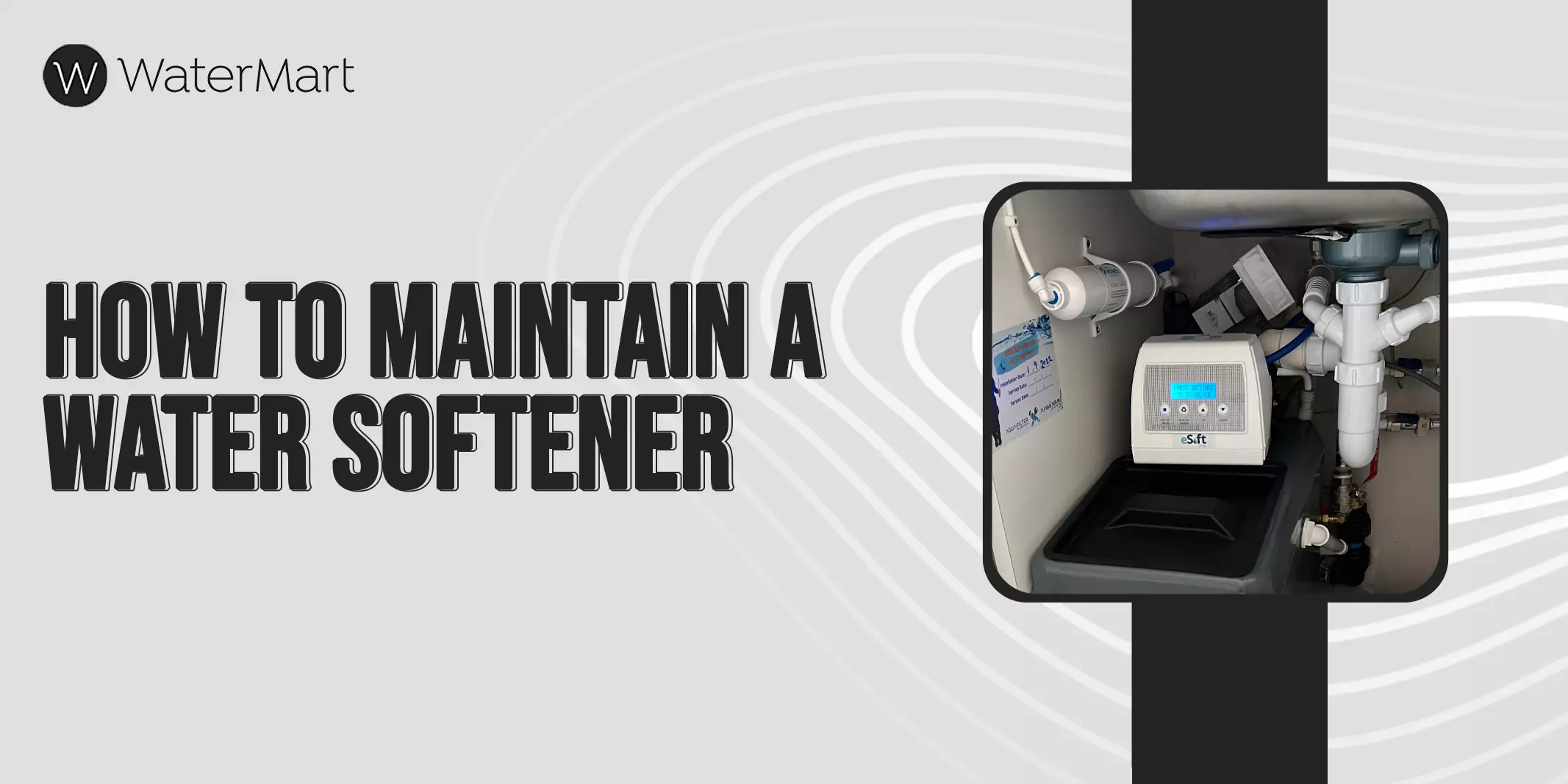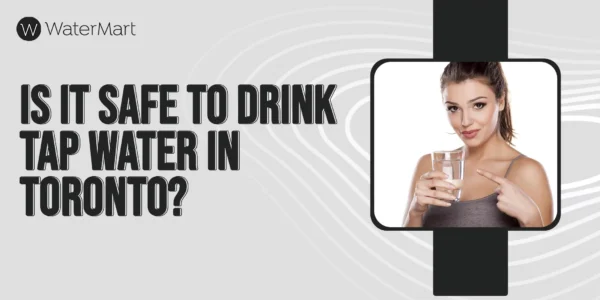Your cart is currently empty!
Water Softener VS Water Filter: Which One is Good?
If you live in Toronto, you might have noticed the white, stubborn film on your kettle or a faint metallic scent in your tap water. The worst of all, is those ugly reddish-brown stains on your whites that leave you wanting more cleaning products.
Whatever it is, the culprit is hard water—a common issue in many parts of the world, including Toronto, Canada. But how do you determine if you have hard water? Or if you need a water softener or water filter for clean and healthy tap water?
Read on!
What is Hard Water and How It’s Dangerous for Health?
Fun Fact: According to Healthline, hard water is not inherently dangerous for health. However, it can affect your lifestyle adversely.
Hard water travels through your pipes and leaves calcium and magnesium behind. Over time, you notice white crusty layers on your utensils, showerheads, and even dishes that won’t clean up even after aggressive scrubbing.
As far as your physical health is concerned, hard water messes up your skin and hair, stripping away natural oils and leaving them dry, brittle, and dull.
Overall, hard water reduces the efficiency of your appliances and shortens the lifespan of your washing machines, dishwashers, and kettles.
What Do Water Softeners Do?
Water softeners help to soften hard water by removing minerals through an ion exchange mechanism to boost the efficiency of your appliances.
Water softeners work by modifying the properties of water using small resin beads. Here’s how the overall process works:
1. The softener system comes with a tank, which is filled with thousands of resin beads. These resin beads act like tiny magnets and attract the ions of Calcium and Magnesium to cling to them rather than staying in the water.
2. Once the traces of minerals are stuck to the resin beads, the resin releases sodium ions into the water, making it softer.
3. Water softeners go through a regeneration cycle for better performance. The cycle involves adding a strong brine solution in a separate tank to wash away the hard water minerals from the resin beads. The regeneration cycle is important so your softener can handle more hard water over time.
Advantages of Using Water Softener
Hard water may possess no potential health risks to you, but installing a water softener makes a remarkable difference to your overall health and lifestyle.
Besides sparkling dishes and bathroom tubs, here are a few other advantages of using water softeners.
Prevention Of Scale Buildup
Those stubborn white films on your kettle, faucets, showerheads, and bathtub rings are a result of hard water in your area. Water softeners prevent scale buildup on your dishes and other surfaces, keeping your home clean and hygienic with less aggressive scrubbing.
Improved Appliance Efficiency
Water softeners prevent the accumulation of scale inside your water heaters and other appliances that may lead to reduced efficiency. Soft water allows your appliances to work more efficiently without disrupting your energy bills, saving you more money.
Enhanced Efficiency of Cleaning Products
Tired of soap scum or mineral stains? We’ve got you covered!
Soap water helps in cleaning more effectively by making soap and detergent work better, ultimately helping you save money on your water bills.
Moreover, your laundry always comes out fresh with vibrant colors and whitey whites.
What Do Water Filters Do?
Unlike water softeners, water filters target a different set of concerns and filter out the contaminants in your water supply for improved health and enhanced water taste and odor.
Water filters are responsible for removing unwanted chemicals and contaminants from your water, including Chlorine, lead, bacteria, and other harmful toxins to keep you healthy.
Here’s how water filters usually work:
- Most water filters use a physical barrier, such as a filter media or mesh to trap sediment, dirt, contaminants, and other particles to keep it free of impurities and bacteria.
- Many filters work through the process of chemical absorption where activated carbon is used to improve the taste and odor of your water.
- Advanced water filters use RO systems that allow your water to pass through a semi-permeable membrane, removing bacteria, viruses, and heavy metals.
What are Iron and Sulfur Filters?
Iron and Sulphur are the major reasons for rusty stains on laundry and fixtures and the rotten smell from your tap water.
At Watermart, we provide complete tailored solutions to tackle issues related to sulfur and iron through our advanced filters that target and remove the source of odor.
Here are a few benefits of our iron and sulfur filters you can enjoy:
- Fresh, clean, and odor-free water for drinking and cooking.
- Sparkling clean laundry with zero rusty stains.
- Unclogged pipes and fixtures for a better living environment.
However, before investing in an iron and sulfur filter, we recommend getting your water tested FREE of cost to determine the levels of iron and sulfur in your home.
Advantages of Using Water Filter
Remove unwanted and harmful contaminants from your water that affect the taste and odor with proper water filtration systems.
Here are a few benefits of installing water filters at home:
Improved Taste And Odor
Get rid of that acidic and fuzzy water aftertaste. Water filters filter out many contaminants and chemicals, including Chlorine that affect the taste and odor of your water, leaving behind fresh, healthy, and hygienic drinking water.
Removal Of Contaminants
Based on the type of filter you have, water filters remove many contaminants, bacteria, viruses, and other harmful substances from your water for a safer and healthier lifestyle.
Flavorful Coffee and Tea
Hard water can be a real party pooper if you’re a true coffee or tea fan. The calcium and magnesium in hard water interact with coffee grounds and alter the taste and aroma of coffee and tea. With water filters, you can enjoy flavorful cups of coffee, tea, and other hot drinks.
Water Treatment Options For Best Water
At Watermart, we provide the two most viable water treatment options for pure water.
Reverse Osmosis System
A home reverse osmosis system is a popular water treatment to remove chemicals and other harmful contaminants from well water. Later, you can re-introduce the useful minerals to make the water alkaline.
Reverse Osmosis Systems are ideal for households with weakened immune systems to offer the highest level of water purification.
At Watermart, we offer a highly advanced and eco-friendly solution tailored to your preferences that removes a broad range of contaminants.
Whole House Filter System
Whole home water filters are an allrounder, providing pure, clean, and filtered water throughout your home.
At Watermart, we use catalytic carbon to remove chlorine and chloramines and improve the taste of your water. Catalytic carbon is a cost-effective solution with a 40% longer lifespan for residential water filters as opposed to standard activated carbon.
Which Water Treatment System Should I Have in My House?
It depends on your needs and household requirements. However, if you have well water or are facing some serious health concerns, installing an RO water system is your best bet.
Otherwise, if you want to improve taste, remove contaminants, and protect your appliances, a whole-house water filter system is an ideal option.
Whatever you choose, make sure to consult water treatment specialists for making an informed choice.
Watermart has a team of experts who assess your water quality and individual needs to provide the perfect solution. Contact us for a FREE water consultation today.
Conclusion
Now that you know the difference between a water softener and a water filter, it’s easy to choose between the two according to your needs.
If you’re facing scale buildup issues, dingy laundry and appliance inefficiency, a water softener should be your go-to.
However, if you have contamination concerns such as water impurities, Chlorine taste, and potential health risks, install a water filter to remove unwanted elements, keeping the water clean, fresh, and safe.
Furthermore, consult water treatment experts to test your water and assess the water quality to find the perfect solution for your home.
Schedule your free test from Watermart today.
FAQS
Does a Water Softener Filter Water?
No, a water softener doesn’t filter water like water filters. Water softeners soften the hard water by removing calcium and magnesium through an ion exchange process.
What is the Difference Between a Water Softener and a Water Filter?
Water softeners target calcium and magnesium in your water through an ion exchange process. They do not remove contaminants such as Chlorine, lead, and bacteria.
Water filters purify the water by removing contaminants such as Chlorine, lead, and bacteria. Water filters use physical barriers or catalytic carbon to remove unwanted elements from your water.
Which is Better: a Water Softener or Water Filter?
It depends on your individual needs. If your main goal is to improve the efficiency of your appliances or prevent soap scum and better hair, nails, and skin, water softeners are your best option.
However, if you have health concerns and want to remove contaminants from your water supply, a water filter is the right choice.
Is Water Softening Safe?
Yes, water softening is completely safe as long as you’re cleaning and maintaining your softening equipment regularly.
